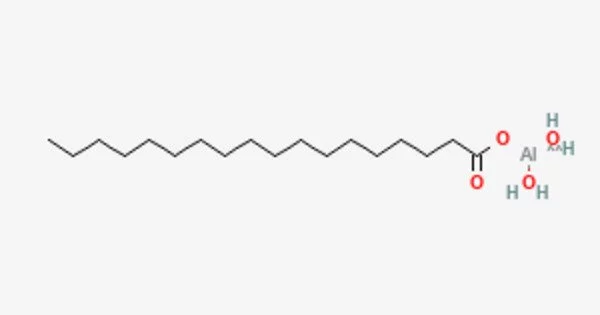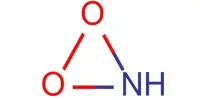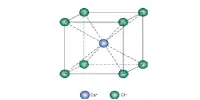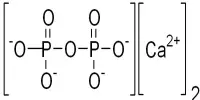Aluminium monostearate is a type of metal soap that is derived from the reaction of aluminium hydroxide and stearic acid. It is a salt of stearic acid and aluminum that is an organic compound. It is a white, odorless powder that is commonly used as an emulsifying agent, stabilizer, and thickener in various industries such as food, cosmetics, and pharmaceuticals.
Its molecular formula is Al(OH)2C18H35O2. Dihydroxy(octadecanoato-O-)aluminium and dihydroxy(stearato)aluminium are other names for it. It is used to create gels in pharmaceutical packaging and to create colors for cosmetics. Aluminum is usually safe in commercial products, but it can accumulate in the body.
Properties
Aluminum monostearate is a white powder that is insoluble in water but soluble in organic solvents. It is a salt formed from stearic acid and aluminum. It is a stable compound that is not easily decomposed by heat or moisture.
- Chemical formula: C18H37AlO4
- Molar mass: 344.472 g·mol−1
- Melting point: 160°C
- Boiling point: 370°C
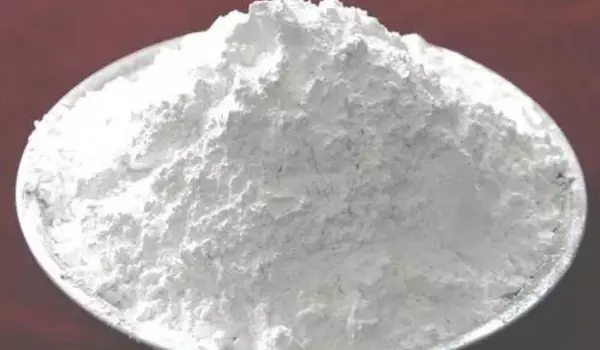
Aluminum monostearate is sometimes added to powdered substances to prevent them from clumping together. It acts as an anti-caking agent and improves the flowability of the powder. It can also be used as a foaming agent in the production of plastics and other materials. It helps to create a uniform and consistent foam structure. Overall, it is a versatile compound that has a variety of uses in different industries.
Application
In the food industry, aluminium monostearate is commonly used as an emulsifier in baked goods, confectionery, and other food products. It helps to improve the texture and stability of these products and can also be used as a dough conditioner and anti-caking agent.
In cosmetics, aluminium monostearate is used as a thickener and emulsifying agent in lotions, creams, and other personal care products. It helps to create a smooth and creamy texture and can also improve the shelf life and stability of these products.
Safety issue
Although aluminium monostearate is generally recognized as safe (GRAS) by the U.S. Food and Drug Administration (FDA) and has been approved for use in various applications, there have been some concerns about its safety. Some studies have suggested that exposure to aluminium may be linked to neurological disorders such as Alzheimer’s disease, although more research is needed to confirm these findings. As a result, the use of aluminium monostearate in some products has been restricted in some countries.
